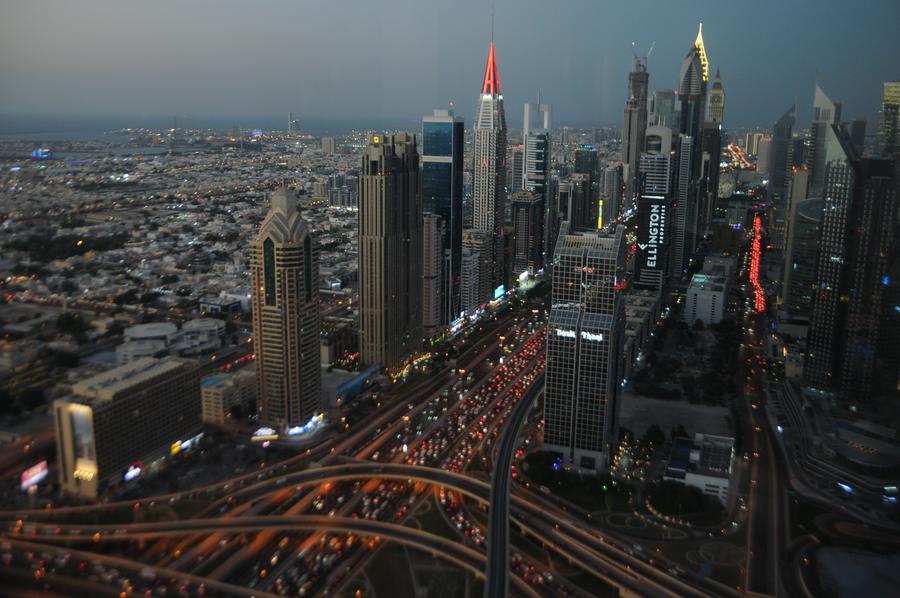
Financial regulators from the Hong Kong Special Administrative Region and the United Arab Emirates said they are committed to building a synergistic green investment ecosystem in the Middle East-Asia corridor by using each of their unique strengths in capital mobilization, regulation frameworks and technology innovation.
They were speaking at the 2nd DFSA-HKMA Joint Climate Finance Conference, co-organized by the Dubai Financial Services Authority (DFSA) and the Hong Kong Monetary Authority (HKMA) on Wednesday in Dubai, UAE. Themed “Transforming Tomorrow: Harnessing Green Finance for Sustainability”, the forum examined the future of green finance through innovation, resilience and cross-border collaboration.
At the forum’s opening session, DFSA Chief Executive Mark Steward said Dubai and Hong Kong represent a powerful East-West partnership that can lead the market by innovating sustainable financial instruments to drive transparency, connect global investors and create local impact.
“Policy harmonization between the UAE, Hong Kong and beyond, is essential for scaling climate finance across borders, whereas common taxonomy, ESG (environmental, social and corporate) disclosure frameworks as well as risk assessment standards are the foundation of investor confidence,” Steward said.
He added that Dubai and Hong Kong are also leaders in innovation in digital platforms, blockchain-based carbon registries, and artificial intelligence-driven risk analytics, which can make sustainability more transparent, traceable and trusted.
Global estimates suggest that over $5 trillion annually is needed in climate-related investments by 2030 to mitigate climate change. Steward said this figure is unrealistic, so a strategic approach is needed by focusing on how to transfer the transition technologies into those industries that need the most as quickly as possible.
HKMA Deputy Chief Executive Darryl Chan Wai-man said policymakers and investors must pay attention to certain questions when aiming to build a green investment ecosystem in the Middle East-Asia corridor: “How to bridge the huge climate-related funding gap, how to leverage the ability of the public market to enhance the yield of private issuers, how to assure investors that there is no greenwashing in the process, and how to synchronize standards or policies across jurisdictions.”
Chan said that regional collaboration in green finance can be fostered via innovation; for example, how to make ESG investment slightly more retail-based, or how to create a more borderless green investment marketplace that facilitates cross-jurisdictional combinations or the grouping of green assets.
Eric Salomons, executive vice president and head of product development at the Dubai Financial Market (DFM) and Nasdaq Dubai, said that the flexibility and approachability of regulators is a key driver regarding the cross-listing of green-related exchange-traded funds, or sukuks.
Salomons added that the DFM and Nasdaq Dubai are considering to be a recognized exchange in Hong Kong so that Hong Kong-based brokers or asset managers can execute trades and orders on the Nasdaq Dubai or the DFM, to ensure execution capabilities. The second consideration is to ensure custody links between the financial markets of Hong Kong and the UAE to make transactions easier.
At the panel discussion, other speakers said sustainable finance in the Middle East-Asia corridor has good prospects.
“I see … a great opportunity for marrying the products and the production and technology capabilities that the Chinese mainland has with the capital and the market of the GCC (Gulf Cooperation Council) region. Hong Kong’s role is to facilitate this flow of capital, technology and products between the two countries and regions,” Templewater CEO and Founding Partner Cliff Zhang said.
“We have different green investment themes and have different forms of financing from adaption finance to transition finance. And with different avenues and channels between the Middle East and Asia, it is very clear that it is a rich and very diverse ecosystem,” Hong Kong Exchanges and Clearing Chief Sustainability Officer Paul Chow said.


